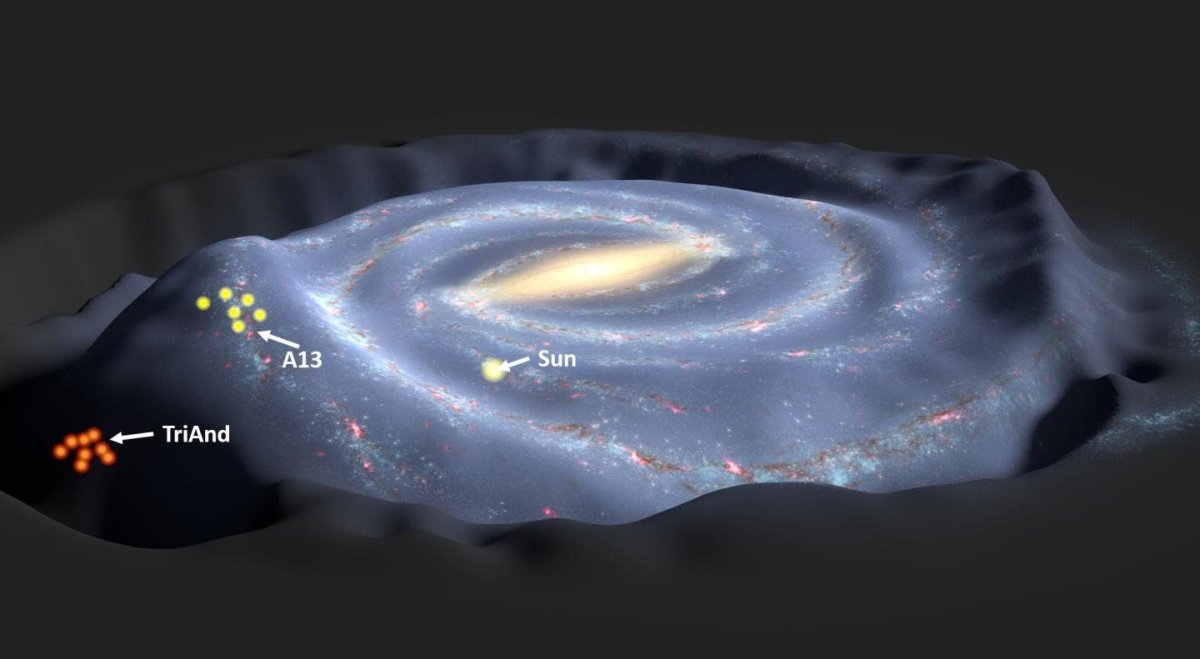Most of the stars in our Milky Way galaxy are trapped in its disk, a flat spiral with a bulge at its center. But a handful of stars float above and below that disk. Scientists had thought that these stars, which they call halo stars, came into the Milky Way when our galaxy collided with another. But new evidence suggests that they are actually Milky Way stars that have been kicked out of the main plane of the galaxy.
That's according to a paper published Monday in the journal Nature, which looks at two clumps of these halo stars found above and below the Milky Way plane, each about 14,000 light-years away from the main action.

The chemical composition of these stars helped scientists better understand their origin. This makeup varies depending on where they were formed, so scientists could confirm that the clusters of halo stars they were looking at had actually been born within the Milky Way's disk. Then they used a computer model to figure out how they ended up in the middle of nowhere.
They realized that the process did indeed involve a smaller galaxy being gobbled up by the Milky Way. But rather than simply depositing its stars in the halo, the galaxy sent shock waves rippling through the disk, shooting occasional clumps of stars out into exile.
Related: Could Proxima B host alien life? A giant flare may have wiped it out last year
"We showed that it may be fairly common for groups of stars in the disk to be relocated to more distant realms within the Milky Way—having been 'kicked out' by an invading satellite galaxy," co-author Allyson Sheffield, a physicist at LaGuardia Community College, said in a press release. Next, the team wants to pin down precisely when the collision may have occurred.
Uncommon Knowledge
Newsweek is committed to challenging conventional wisdom and finding connections in the search for common ground.
Newsweek is committed to challenging conventional wisdom and finding connections in the search for common ground.
About the writer
Meghan Bartels is a science journalist based in New York City who covers the science happening on the surface of ... Read more
To read how Newsweek uses AI as a newsroom tool, Click here.








